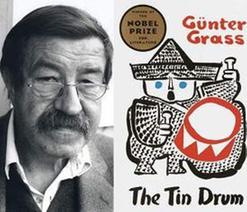 First published in 1959, The Tin Drum became a post-war classic of magical realism that in a roundabout manner tells the tortured story of Germany in the 20th century. Its author, Günter Grass, who died on Monday, won a Nobel Prize in 1999 and was cited for his "frolicsome black fables [that] portray the forgotten face of history." The mesmerizing novel is narrated by Oskar Matzerath, who decides at age three to stop growing. Oskar drums passionately and has a piercing shriek that can break glass. Still, he has a decidedly adult view of the world, and his story is set against the rise of the Nazis, the war and the post-war period as the country fitfully grapples with its criminal past. Grass himself became a towering figure in politics in Germany, supporting the Social Democrats and acting as a kind of voice of conscience--and shocked people across the world when nine years ago he revealed in his memoir, Peeling the Onion, that at the end of World War II, at age 17, he served in the Waffen SS.
First published in 1959, The Tin Drum became a post-war classic of magical realism that in a roundabout manner tells the tortured story of Germany in the 20th century. Its author, Günter Grass, who died on Monday, won a Nobel Prize in 1999 and was cited for his "frolicsome black fables [that] portray the forgotten face of history." The mesmerizing novel is narrated by Oskar Matzerath, who decides at age three to stop growing. Oskar drums passionately and has a piercing shriek that can break glass. Still, he has a decidedly adult view of the world, and his story is set against the rise of the Nazis, the war and the post-war period as the country fitfully grapples with its criminal past. Grass himself became a towering figure in politics in Germany, supporting the Social Democrats and acting as a kind of voice of conscience--and shocked people across the world when nine years ago he revealed in his memoir, Peeling the Onion, that at the end of World War II, at age 17, he served in the Waffen SS.
The Tin Drum was first published in the U.S. in 1961, in a translation by Ralph Manheim. In 2009, to mark the novel's 50th anniversary, Houghton Mifflin Harcourt issued a new translation, by Breon Mitchell, that is more faithful to the original and better reflects the style and rhythm of Grass's writing. The Tin Drum was also adapted for the screen by Volker Schlöndorff, a beautiful movie that won a 1979 Oscar for best foreign film. --John Mutter

